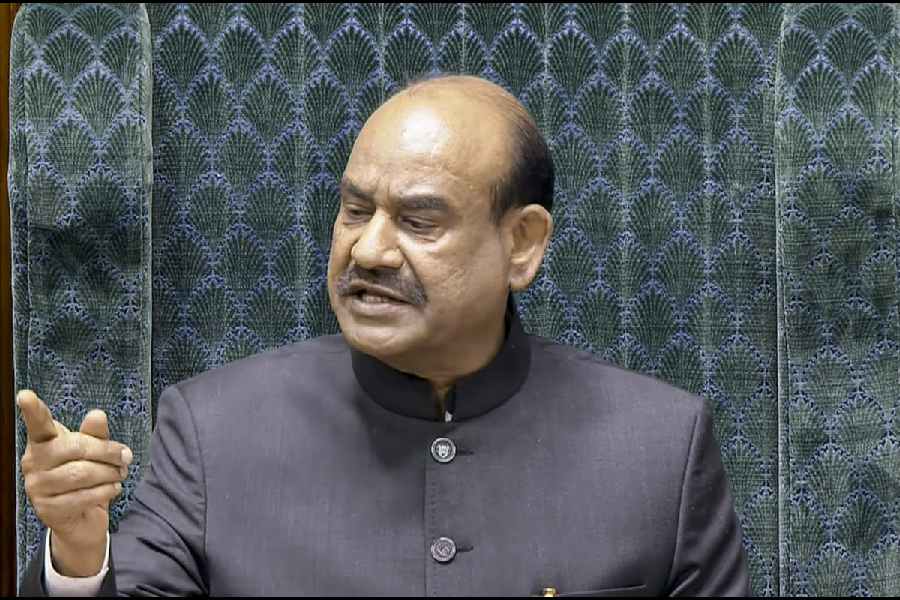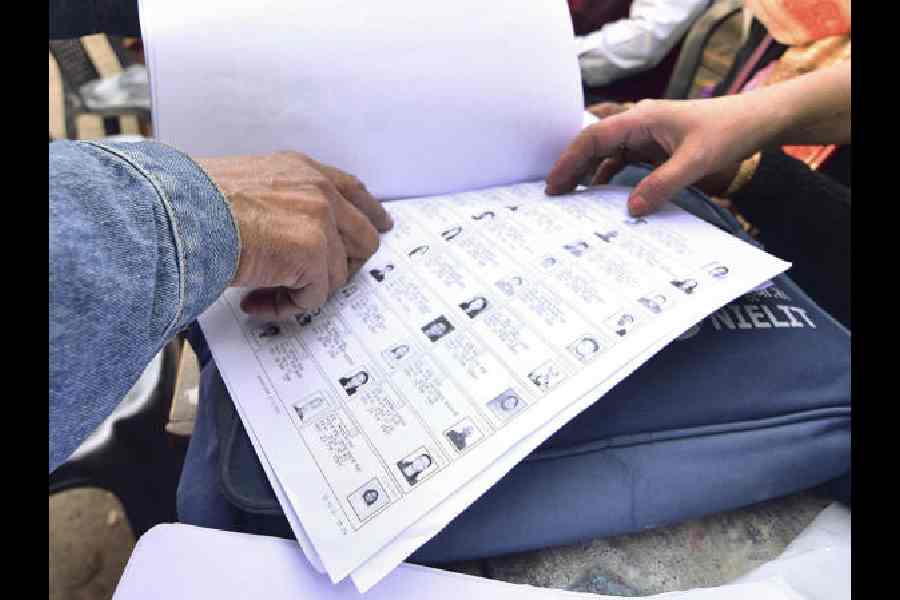A heartbeat. That's how long it took Shahnaz Parvin Akhtar Kausar to decide to end her life and jump into the Jhelum river, which meanders down Pakistan Occupied Kashmir (PoK) into Jammu. Fed up with her in-laws' unrelenting taunts about her inability to conceive and her husband Muhammad Yunus' apparent lack of concern, Shahnaz wanted to end it all. So, on a sunny October morning in 1995, she walked towards the river from her village in Haryan, Dabagh, district Mirpur in PoK and plunged in.
But Shahnaz did not die. Instead her life took a trajectory that symbolises the human tragedy of two neighbours, India and Pakistan, existing in a state of perpetual hostility for over 50 years. At the core of the enmity lies an intractable question: who lays greater claim to Kashmir - Pakistan or India?
Shahnaz landed in prison where she has spent almost seven years now. She has been raped, given birth to a daughter and spends her time today counting the days she has spent away from her village.
The ochre and red brick building of Jammu district jail stands forlornly under the cascading monsoon sky. The prison houses 112 prisoners, including 23 women and six children. It is visitor's day and some of the sombreness of the institution is erased by the sound of boisterous laughter. But the bonhomie evaporates as you walk towards the women's cells, even though the sun has suddenly made an appearance. The golden rays are pouring in through the barred windows of a large sized room. For over four years, Shahnaz has been sharing this space with five other women and her daughter Mobin, who is nearly six years old.
At 32, Shahnaz, dressed in a golden-yellow salwar kameez, is a slender, handsome woman with coppery skin. Nearly five feet five inches, she is tall by Indian standards. Despite her apparent lack of education, a sense of quiet refinement envelops her. It is obvious Shahnaz does not seek pity as she recounts her tale in a mixture of Pahadi and Goddari, a dialect spoken by the Gujjar tribe, in a calm, imperturbable voice.
After jumping into the river, Shahnaz says, she almost uncannily floated towards India where she was fished out by a soldier from the Indian Border Security Force (BSF) near Nowshera in Rajouri district of Jammu. Though she managed to persuade her saviour that she was a bona fide trespasser and not an enemy spy, she was marched off to the Nowshera magistrate's court. For entry without a passport, under the Enemies Ordinance Act, she was punished with a 12-month sentence and fined Rs 500. Because she had no money, Shahnaz's sentence was extended by another three months. She was then transferred to the district jail in Poonch to serve her sentence. It was here that her life took a strange new turn.
Shahnaz's voice drops an octave lower, almost to a whisper, as she recounts the day when she was raped by Mohammaduddin, the jail warden at Poonch. 'When it was happening I didn't scream for help because I thought the warden might kill me. And then I thought even if I shouted, nobody would come because I am a Pakistani.' However, she did complain later and Mohammaduddin was suspended and a legal case registered against him.
The rape resulted in the birth of a daughter whom she named Mobin after consulting the Quran. Since Shahnaz had always believed she was barren, the event changed her life completely. Brought up in a family of eight siblings - four brothers and four sisters - Shahnaz had longed to have a large family after marriage. But thanks to her in-laws, she had always believed that she was infertile. Until now. Which is why when she was given the choice, she refused to abort the child. 'The best memory of my life is connected to its saddest event,' she says. 'It was the worst possible way to have a child but I felt fulfilled at the same time.'
After Mobin's birth at Poonch District Hospital, Shahnaz returned to prison. 'Unfortunately, when she completed her sentence in early 1997, nobody told her that she was free go back home,' says A.K. Sawhney, a Jammu-based lawyer who is fighting her case on behalf of a Chandigarh human rights group, World Human Rights Protection Council. Sawhney has filed a petition in the Jammu High Court asking why Shahnaz was still being kept in jail with a child. Instead of making arrangements for her return to Pakistan, or trying to integrate her into the local community, Sawhney says she was bundled off
yet again to another penitentiary - Jammu district jail.
To keep her incarcerated legally, new charges were filed against Shahnaz in August 2000 under the sweeping Public Safety Act. Another 24-month sentence was given. 'We have had to keep her in jail because as a Pakistani citizen without valid papers we cannot even send her to a destitute home,' says S.S. Ani, superintendent, prisons, Jammu and Kashmir. ''It's not an ideal situation for her, but under the circumstances it is the only option.'
Mobin, who has spent her entire childhood in confinement, will turn six this October. She knows no other life. At eight a.m. every school day, a constable, whom she calls 'policeman uncle', escorts her to the local school. The intimacy between Mobin and her jailors is unmistakable. Wearing a brilliant red dress, tight braids and a dazzling smile, a perky Mobin exhibits her command over the English language by singing out the alphabet. 'She will be the only one amongst all her cousins who will know English,' says Shahnaz
proudly.
Ani declares that three attempts were made to get Shahnaz and her daughter back to her country. But they have been futile. The last attempt to secure Shahnaz her freedom took place on June 25, 2001, on the eve of the Agra summit held between Prime Minister Atal Behari Vajpayee and his Pakistani counterpart, General Pervez Musharraf. As a goodwill gesture to mark the event, a prisoner exchange between the Pakistani Rangers and the Border Security Force was scheduled at Wagah. Six Pakistanis who had strayed into India were going to be exchanged for a similar number of Indians who had wandered into Pakistan. A delighted Shahnaz dressed herself and her daughter for the event, bid farewell to their friends and went off to what she thought would be freedom.
When her turn came, says Shahnaz, the Pakistani Rangers made it clear that while they were willing to accept her, Mobin - born of an Indian father - was not going to be allowed to cross over. For Shahnaz, returning to India meant going back to prison. But to leave without her daughter was never an option. 'Why would any human being want to separate a mother and her child?' she asks. Like the Kashmir dilemma, this question, too, remains unresolved.
 Wednesday, 11 February 2026
Wednesday, 11 February 2026










